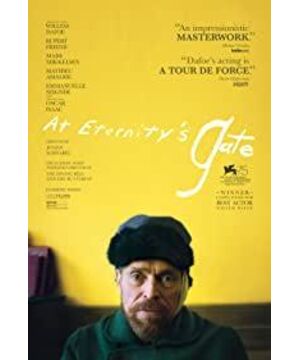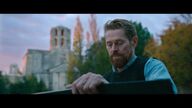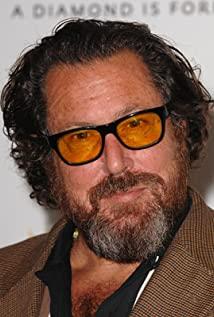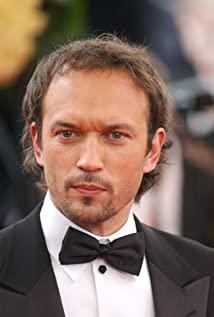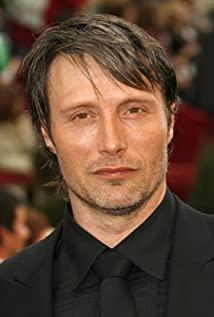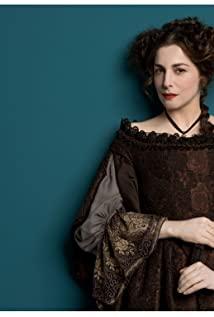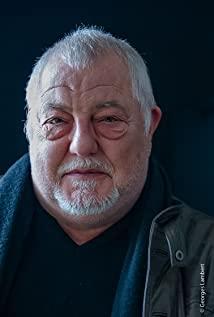1. Van Gogh: At Eternity's Gate (At Eternity's Gate, 2018), it consists of five types of "dialogue" scenes:
[1] The first is the dialogue between Van Gogh and the public, including the dialogue with women in the tavern, and the dialogue with a group of teachers and students in the wilderness, so as to show the commonality, reality and shallowness of the public. The women in the tavern said they didn’t read the allegorical literature, but only read the succinct words as reported in the newspapers; among the teachers and students traveling in the wilderness, the children asked "why draw the roots of trees" and they were a little bit confused, but the teacher said, " The paintings are nothing like them. Now anyone can call themselves a painter.” This is full of doubts and provocations; in this way, we can know that Van Gogh is facing the pain of Xia Chong.
[2] The second is the dialogue of art, including a group of artists who organize clubs in a tavern and a conversation with Gauguin. Especially in the dialogue with Gauguin, Van Gogh fully explained that his brushwork came from the inherited foundation of classical painting. He said that his brushwork was a technique learned from many masters, but his groundbreaking, the feeling of lines and light and shadow. Going too avant-garde, finally ran away from Gauguin. In the face of increasing conflicts and the departure of his confidant, he finally punishes himself (cut his ears) by lowering his head to stay.
[3] Third, it is a spiritual dialogue, which can also be said to be a dialogue of oneself, especially in police stations, asylums, and mental hospitals. During treatment with other mental patients, you will find that the soldier with whom you are talking has witnessed too many cruel facts in military battles and is unable to bear the burden and collapses, just like Van Gogh cannot bear the deep and full feelings of nature and is on the verge of madness. . The conversation with the priest showed that his mastery and expression of the truth of the universe was so far ahead of that era that no one could match it—showing self-persistence and affirmation. It is easy for us to discover Van Gogh’s suffering from the outside world, but can we discover his own happiness from Van Gogh itself, even at the end of life, there is no accusation, accusation or complaint! Van Gogh is like Yan Yuan-Xian Zai will return! A scoop of food, a scoop of drink, in the alley. People are overwhelmed and will never change their "happiness."
[4] Fourth, daily conversations, including with younger brothers, doctors, etc., are used to construct the timeline of Van Gogh’s life course.
[5] Fifth, a silent voice, a dialogue scene without dialogue, can also be said to be a dialogue with Tao. When Van Gogh's eyes are natural and his heart is enlightened, at this moment, he stops speaking, stops thinking, and is immersed in the changes of light and shadow. The so-called "Tao, Dao, and very Dao"-so there are so many scenes of silent sound. Taking up the largest part of the movie, the director constantly takes pictures through the lens to immerse the audience in such eternal light and shadow.
2. Teacher Xin Yiyun Lao Zi Xin Shuo Volume Seventy Seven:
There is a movie worth checking out for those who love to watch art movies, Van Gogh: At Eternity's Gate (At Eternity's Gate, 2018). Van Gogh was a great post-impressionist painter in the late nineteenth century. This film is actually showing Van Gogh's innate painterly. At that time, all people could not accept Van Gogh’s paintings, thinking that his paintings were crude, ugly, contrary to the reproduction of objective facts in the eyes of ordinary people, and believed that they were totally inconsistent with objectivity, or objective natural science; coupled with his fanaticism Of course, in real life, he is not good at interacting with people, so he will be bored to paint, so everyone thinks that he is a weird person, and he is excluded wherever he goes. Even in this movie, it is believed that he is not understood because of this situation, rejected because of not being accepted, or even denied, so he is suppressed everywhere, and even beaten. Because of this, the children often beat him, throwing stones to smash him; the villagers also want to drive him out of the village. Finally, in this movie, he was shot and wounded by a bad boy in the village and died as a result. So this film emphasizes that he was beaten to death because of the total rejection of his paintings.
Before he died, because he was not understood and accepted, everyone felt that he was a strange personality and thought he was a madman and a dangerous person, so he was sent to a mental hospital. In these processes in the mental hospital, in the film, Van Gogh himself described why he painted like this, why everyone hates it, and he still paints like this—he said, he just follows his own My eyes see the nature that I see, the bright yellow sunlight, the unprovoked light and shadow, and the amazingly beautiful colors that appear in this unprovoked light and shadow, all of which are given by God The natural state shown by human beings is the eternity given by God, and I just record them.
At that time Gauguin went to see him and even lived with him, persuading him not to run in the sun to paint that nature, come back to the room! When you enter the room, just paint the situation inside, so as not to make Van Gogh himself always over-excited in nature—over-excited because of the beauty he sees. In the end, Van Gogh declined, and Van Gogh persuaded Gauguin instead: "Come out to welcome the real nature! Look at the light, look at the brilliant light! Look at the infinite and unprovoked reflection of the changes in all things under that light!"
When he was in the nursing home, the priest said, "Why do you paint such ugly and crude paintings? It's almost a manifestation of the devil!" Van Gogh replied to the priest, "I know my paintings are not liked by people. They think it’s ugly.” He said, “In fact, it’s not necessarily ugly. It’s just that people still cannot see, know or understand the beauty given by God, and cannot realize the eternal place in the heaven and earth given by God—this greatness. Naturally, this superbly beautiful nature is the place that leads to God's eternal door! But I saw it, and I couldn't help it, so I naturally embraced him and made a record of him."
The priest asked him again: "How are you sure that people still don't know and have not seen the eternity given by God?" He said, "Look! When Jesus was born, he preached and called for the salvation of the world, but the people at that time I don’t know. The Jews at that time also demanded and even persecuted Pilate, the governor of Rome, to crucify Jesus on the cross. People at that time did not see that Jesus was the Son of God, and Pilate, the governor of Rome, did not know him. Crucified Jesus on the cross and killed Jesus. And when people started to know the Word of Jesus, the love of Jesus, and the love of God, it was already 30 to 40 years later, and 30 to 40 years later, people Only then have the ability to know Jesus, see Jesus, and know the love Jesus said.”
The priest asked him again: "So, don't you expect others to know you now?" Van Gogh said, "People are still not capable of knowing me. That's the way it is! It will take many years before people can get to know you. The gate of eternity! I just follow the call of my heart and draw what I see-and now only I see it!" Van Gogh said he doesn't expect people to know him now, because it must be many years later. People can recognize him because he was born early; it is the same as Jesus was born early. However, in the future, people will know him and the eternity he painted.
At that time, Van Gogh also said that he would be happy only when he was painting, and that he would not be able to hear the various noises in his mind. Of course, this is the particularity of Van Gogh, and what I want to introduce is not the particularity of Van Gogh, please pay attention! It’s not that Van Gogh may have some individual or special conditions, etc. Now I’m not talking about this, but to notice that Van Gogh is painting in this movie. He doesn’t have any habit of painting in that era. , That is, commercial purpose that can become a commodity and can be sold at a price. His paintings are not waiting to be sold, nor are they painted for people who are waiting to buy paintings. His works are not painted for the sake of becoming commodities. He just follows the nature he sees and feels, without any pretentiousness. I happily went to paint and made records.
Maybe we went to see this movie, and through Van Gogh’s statement of his own painting philosophy and his attitude towards painting in this movie, we can talk about "being virtuous but not virtuous" and "being virtuous without doing anything." As a reference, the principle of "inaction without thinking" is used as a reference, especially in the case of "doing nothing without thinking in virtue." All the expressions of "supreme virtue" are completely grand, natural, and inaction. To what extent is this expression of inaction? When it comes to the fact that even the reliance that can be used as any motive has disappeared, all actions are nothing more than the natural manifestation of the avenue, and everything is natural.
View more about At Eternity's Gate reviews


